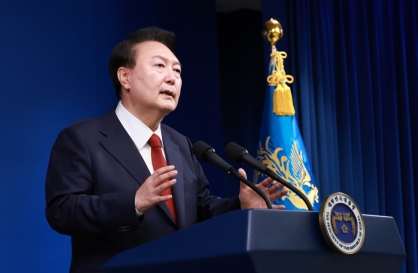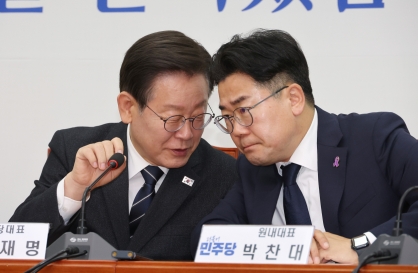Absence of viable security frame necessitates military alliances in NE Asia: U.S. official
By KH디지털2Published : Sept. 10, 2015 - 15:04
The absence of a viable security system among Northeast Asian countries necessitates the military alliances the United States maintains in the region, a former U.S. official said Thursday.
"From the organization perspective, we see that (security) architecture in Northeast Asia has historically been woefully underdeveloped ... we also had limited security cooperation in multilateral context," David Helvey, a former U.S. deputy assistant secretary of defense for East Asia, said during the three-day Seoul Defense Forum being hosted by the Ministry of National Defense.
The creation of inclusive multilateral security architecture requires willingness from all Northeast Asian nations, including South Korea, Japan and China, to make binding commitments on hard security issues as well as soft stuff, Helvey said in a session on Korean unification and global security.
But in the absence of such commitment, the countries could not come up with security structures that can effectively serve as constraints on major powers, he said.
"And in the absence of these kinds of constraints, I don't think the mechanism themselves are going to serve as a viable alternative to the foundation of alliances and other self-help systems that have persisted in the Asia Pacific."
Helvey indicated that a lack of such a security-ensuring system in the Asian rivals requires the U.S. to continue to keep its military alliances on the Korean Peninsula and in the region even after a potential unification of the two divided Koreas.
External players in the Northeast Asian region share general consensus in support for peaceful unification, but are sensitive to the shift of balance of power that may follow the unification, he said.
"Traditional self-help, alliance-based framework will still be necessary to address hard security issues in the region," he said.
Touching on the recent inter-Korean military tension, he said the incident was "a clear reminder of clear threats to peace and security that North Korea poses today ... and strength of the U.S.-Republic of Korea alliance."
The military again proved its role as a deterrence to the North and a key enabler for dialogue as well as a regime to reduce tension on the Korean Peninsula, he said. (Yonhap)









![[K-pop’s dilemma] Time, profit pressures work against originality](http://res.heraldm.com/phpwas/restmb_idxmake.php?idx=644&simg=/content/image/2024/05/08/20240508050705_0.jpg&u=20240508171126)








![[Today’s K-pop] Stray Kids to drop new album in July: report](http://res.heraldm.com/phpwas/restmb_idxmake.php?idx=642&simg=/content/image/2024/05/09/20240509050659_0.jpg&u=)